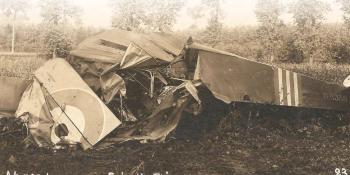India was vital to the progress of the war. That massive country and its invaluable resources mobilised the largest volunteer army ever raised. Indian battalions, ships and squadrons fought hard in all theatres and also to eject Japanese invaders from the homeland.
India was plunged into war by the British Viceroy, Lord Linlithgow, without consulting its political leaders. Yet, for the most part, India was committed to the war effort. Even the famed pacifist Mohandas Gandhi declared that his "own sympathies" lay with Britain "from a humanitarian standpoint".
However, none of that meant the imperial status quo was acceptable and a powerful pro-independence faction, partially led by Gandhi, demanded decolonisation in return for the blood India was to spill. It was a view shared by some overseas, too, being a rare sticking point between Churchill and Roosevelt, with Winston reluctantly allowing FDR to cement the right to "self-government" in the Atlantic Charter.
Roosevelt did not call for India’s immediate independence, but he regarded this as inevitable after the war.
“It is alarming and nauseating to see Mr Gandhi [...] parley on equal terms with the representative of the King-Emperor”
WINSTON CHURCHILL



